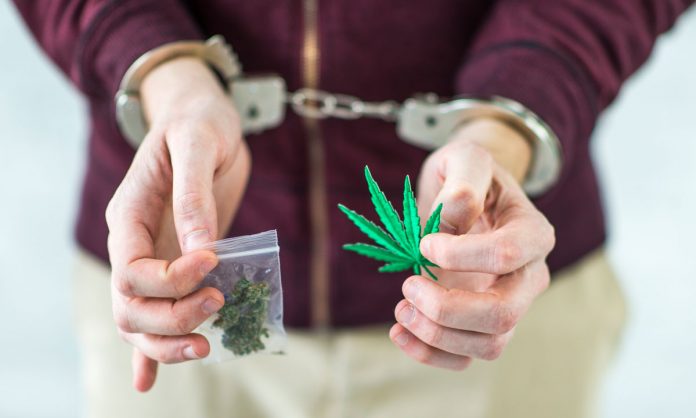Cannabis taking root in Colombia
Cannabis companies are rushing to set up operations in Colombia, looking to gain a foothold in one of Latin America's drug capitals as governments across the world embrace the burgeoning legal marijuana industry.
Growers, many with financial backing of firms from Canada and the U.S., estimate as much as $500 million has been invested to buy farmland, build greenhouses and set up labs to produce oils, creams and other products that contain cannabidiol, or CBD, an extract used to treat everything from chronic pain to insomnia. So far, none are growing marijuana rich in tetrahydrocannabinol, the substance that makes smokers high.
Embracing the industry may seem surprising for a country that has long been embarrassed about its status as the world's largest cocaine producer and has struggled to escape its reputation as a violent narcotics center that gave rise to the likes of Pablo Escobar. But with the global cannabis market estimated to be worth more than $50 billion by 2025, Colombia has sought to become a center of production for exports to countries around the world that are legalizing its use. Domestic laws permit small quantities of pot for personal consumption, but the country hasn't put in place final regulations for medical use.
"When you mention Colombia, unfortunately, some people relate that name with illegal drugs," said Julian Wilches, a former director of drug policy in the Justice Ministry who co-founded the medical cannabis company Clever Leaves, which began operating in 2016. "We have an opportunity here to take a controlled substance and change that reputation, to bring health to people and development to our country."
Clever Leaves is producing about 24 metric tons of dried cannabis a year, grown in greenhouses on a sprawling farm tucked in a valley about 8,000 feet above sea level in the Andes. With an expansion already underway, the farm should be able to produce about 324 metric tons next year, making it among the world's largest growers.
Colombia in 2016 joined a small group of countries that permit cannabis cultivation, leading hundreds of companies to apply for licenses. The country's natural advantage is its position near the equator, which provides around 12 hours of sunlight year-round, making it cheaper for growers than places where artificial light is required.
That attracted some of the industry's largest names, with investments from Canada's publicly traded Canopy Growth Corp., PharmaCielo, Khiron Life Sciences, Aurora Cannabis Inc., and Aphria Inc.
The expansion has continued even as investors have cooled to once high-flying pot stocks. The largest exchange-traded fund of marijuana companies tumbled more than 35% in the past three months to a record low this week, dragged down by concerns about vaping-related illnesses in the U.S. and a slow path to profitability for some of the industry's biggest players.
"The cannabis industry in the last three months has faced a reduction in investment, but the interest in Colombia is still very promising," said Juan Diego Alvarez, vice president of regulatory affairs at Khiron, which plans to produce about 80 tons a year of cannabis in Tolima, a mountainous area in the Central Andes. "Colombia in the near future will become a center for development and research for the industry."
EXPORT FOCUS
The sector has been held back by a complicated regulatory and permitting system. While hundreds of companies were granted licenses since 2016, only a handful have begun growing. None of the cannabis currently being produced is the kind that produces significant levels of tetrahydrocannabinol because of more onerous regulatory procedures for those varieties.
Because Colombia has yet to finalize regulations for the domestic market, producers are focusing on exports.
President Ivan Duque vowed last month to cut bureaucracy and support the industry. Revenue from the sector in Colombia is forecast to balloon to $791 million by 2025 from $99 million in 2020, according to a draft study by think tank Fedesarollo. Researchers estimate the market for cannabidiol in the U.S. alone could be worth almost $23 billion by 2023.
Clever Leaves became one of the first Colombian companies to book sales, exporting products to the United Kingdom and Poland. It is targeting Germany after it receives approval from the European Union.
As Colombia looks to ramp up exports, it's already facing competition from other Latin American countries, with governments from Mexico to Argentina establishing laws to develop industries in those countries. Colombia is more advanced in the process, according to Kyle Detwiler, the chief executive officer of Northern Swan Holdings, a New York company that has invested about $40 million in Clever Leaves.
"It's the perfect region for growing," he said.
- Read more about Cannabis taking root in Colombia
- Log in to post comments

